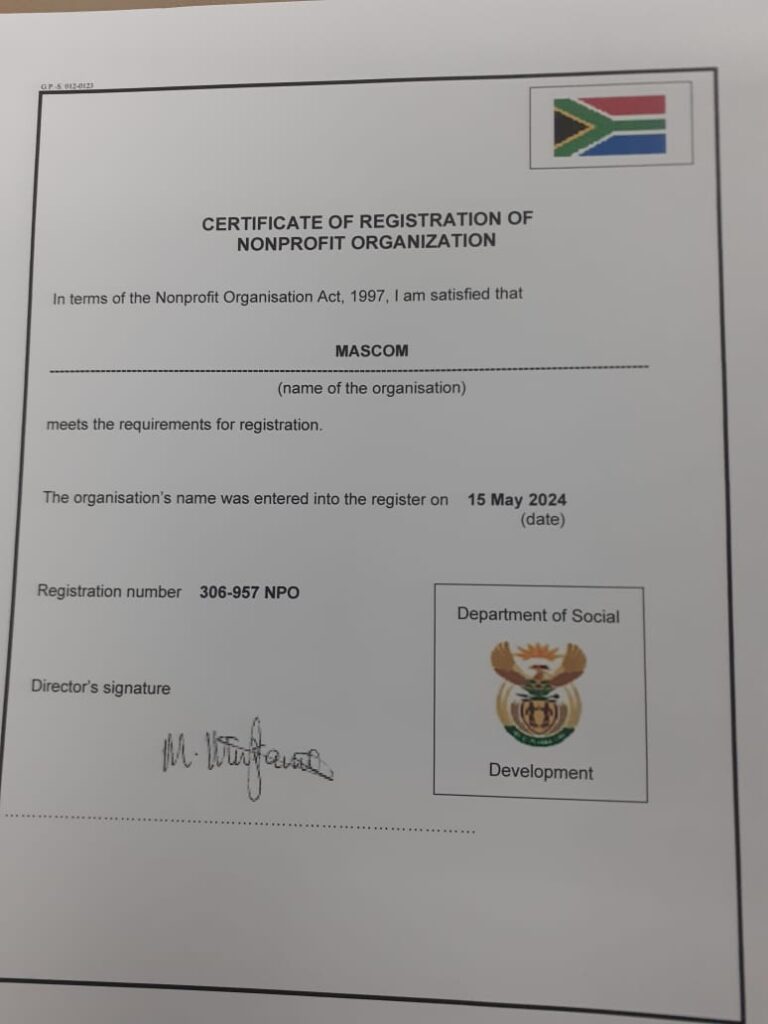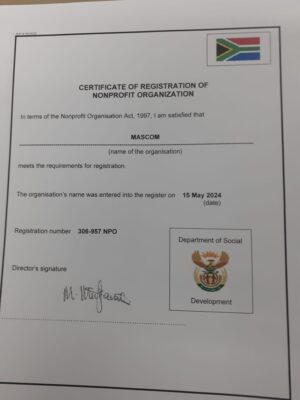Planact wishes to congratulate the Emalahleni cluster of communities, also known as MASCOM for its recent legal registration as an independent Non-Profit Organisation.

MASCOM’s registration is a significant marker in the development and sustainability of community based social movements under the Cluster of Community Agency (CCA) model. The CCA model aims to elevate community advocacy by employing the power in the numbers created when community agents come together under one name and mandate.
MASCOM, a cluster consisting of 13 communities, is now a registered NPO and can operate independently with their own letterhead apart from Planact. The evolution of MASCOM from a group of like-minded community representatives to a recognised organisation demonstrates the ability of the CCA model to open doors to further funding, project implementation and growth.
The ‘Cluster of Community Agency’ concept
The CCA is a concept Planact developed to create coherent actions to enable systemic transformation within the local government development processes influenced by communities. Planact supports informal settlements to form clusters of between 10 and 15 communities (informal settlements) in each of the targeted local municipalities. The informal settlements comprise an average of 700 households therefore, a cluster has an average of 8,400 households.
Planact has supported partner communities and they have formed clusters in all of the local municipalities it is working in. The clusters are at different stages of the process of development. Given that there are many households in each cluster, care must be taken to ensure that there is a fair presentation of all community members at the leadership structure of the cluster. Also, it is important that the leadership structure can relay information to community members adequately. This action is aimed to producing coherent actions from the formed clusters.
The coherent actions from the Clusters of Community Agencies will enable systemic transformation within local government development processes. Communities need to be capacitated on their constitutional rights and the application of these rights. Putting these Rights into practice requires communities to know the legislated government structures to approach and the best way to work with these structures. This will focus on the participatory local governance.

